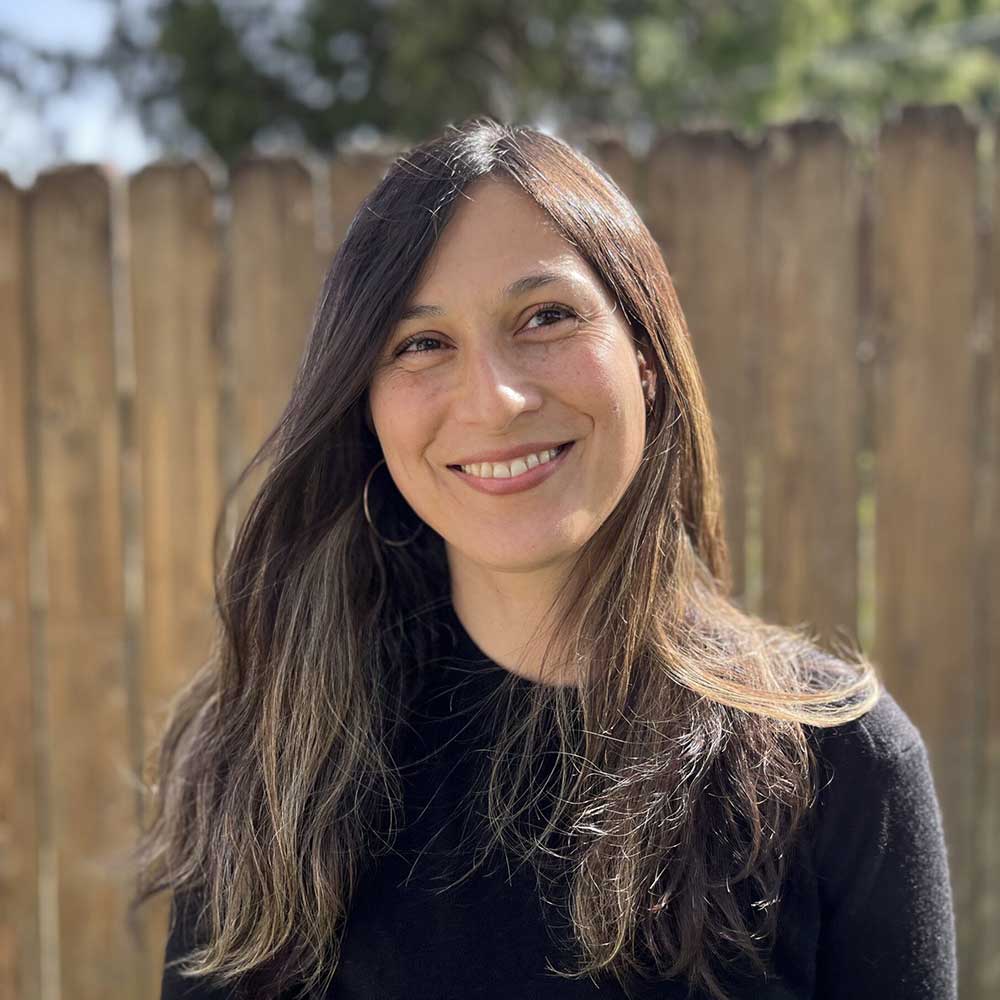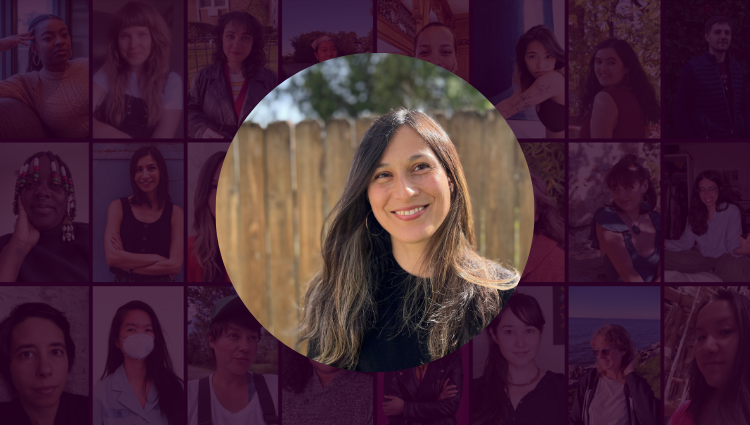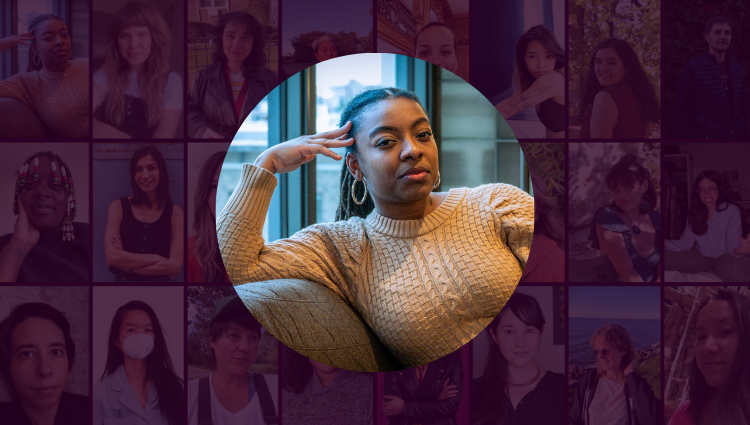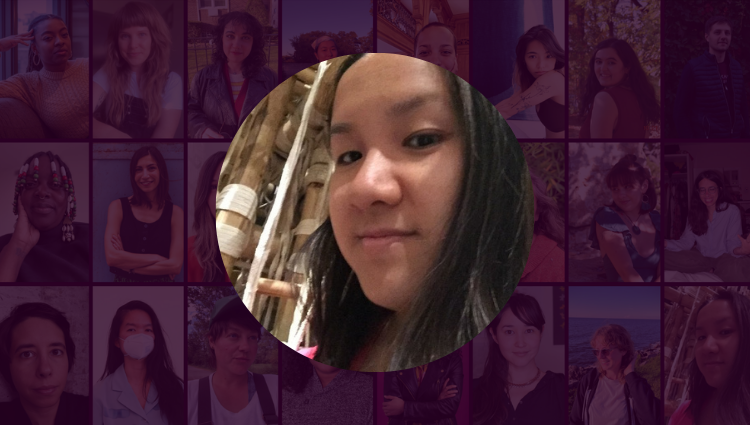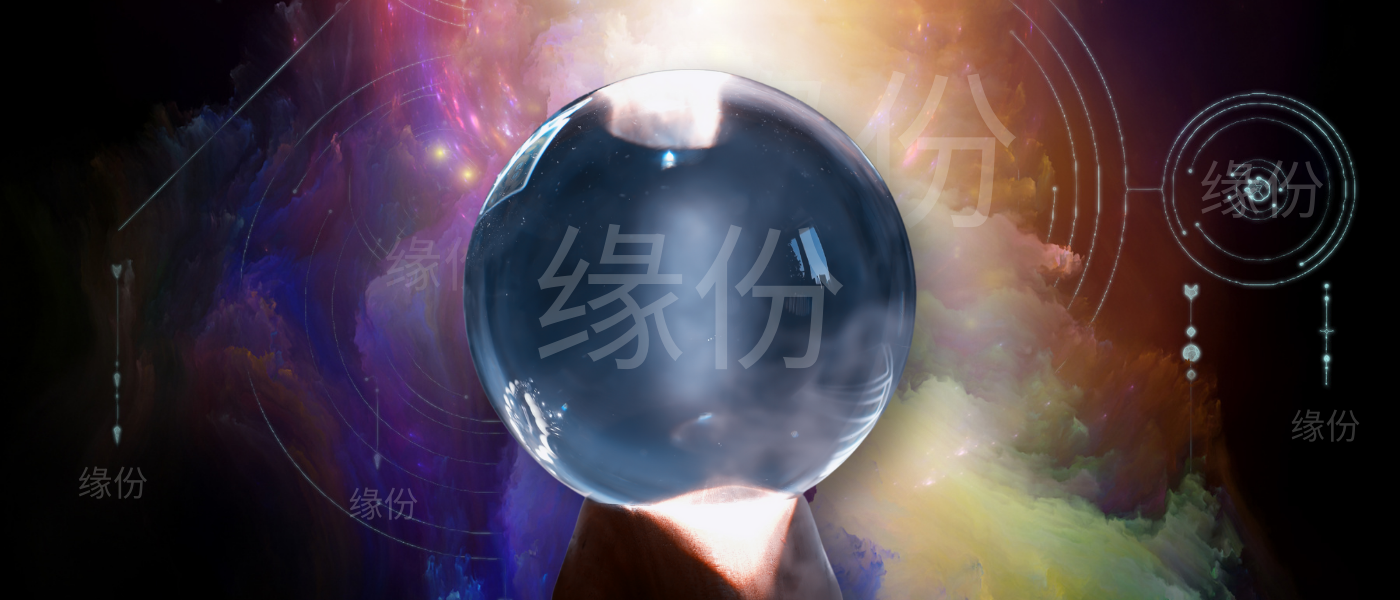A Q&A with Elisabeth Vasquez Hein
Elisabeth Vasquez Hein was one of our Summer 2024 Digital Residents. As a part of this program, we give our residents the option to publish an excerpt of their work, write a process piece, or have a Q&A with us. Here, Elisabeth does a Q&A with Seventh Wave, giving us a glimpse into her words, work, and process. You can read more Spotlights here.
Seventh Wave: Tell us about your work or what you’re writing these days. What or who are you writing for?
Elisabeth Vasquez Hein: These days, my work is a continuation of the ancestral healing I began with my sister in 2019. My sister and father both passed away in 2022, and along with their departure, a trove of family memory was lost. I’m writing to address the generational trauma we came from. My work is to find the form that lets our ancestors sing.
Through a memoir in essays, I am writing about diaspora, and the fallout of migration and separation. The way love manifests or is denied across distances. I write for the artifacts of divergent geographies, such as letters and photos sent by airmail. I write for the landscapes that impacted our family’s shape.
I write for grief, to embrace it when the dominant culture wants to obscure it. I am writing for the ones who have left this world, and to write them back into this world. I am writing for the adult children of immigrant parents who could not or would not let us into their world, and for mixed-race and third culture kids who struggled to feel they belonged.
I write for my throat which has the habit of closing up when it knows I have something to say. I write for my eyes which look away when there is something they need to see. I want to see how my wound is like my mother’s wound, my father’s, sister’s and brother’s. I write to see the overlap and extensions of these wounds, to write around their edges. I can feel that our emptiness is the same emptiness, and maybe through writing, the emptiness transforms into lightness.
TSW: What is a question you’re asking yourself these days, and, what’s a question you are or your work is asking of your reader?
How do we give form to the silences that shaped us? How do we create ritual out of previously negated experiences?
TSW: Who do you bring into the room with you when you write or who do you consider your work to be in conversation with?
EVH: I bring into the room my ancestors, those whom I’ve lost, those who were unknown to me. My work is in conversation with objects and archives, maps, photographs and symbols that have been passed down. I think of my writing as correspondence, an attempt to reach that which was forbidden.
TSW: What’s a writing routine or ritual that keeps you beginning these days?
EVH: I have a day planner which is too large to carry around in my purse but fits perfectly in the drawer of my nightstand. Each page is dedicated to one day, and therefore provides quite a bit of space to write, but not too much space that it’s daunting. Lately I jot down notes before bed of things I saw, felt, desired, obsessed over, noticed, and was grateful for. I try to relate these notes to my work as a writer so that I have something like a process journal I can refer to over the months and years it takes me to chisel my memoir manuscript into shape. I don’t always have much time to write and revise during the day, but I always know I can count on the 10 minutes at night after my daughter has fallen asleep and my husband is in the shower.
TSW: What is a story that gave you permission to tell yours?
EVH: Victoria Chang’s Dear Memory gave me permission to tell my story. I read her book at a time of two devastating losses in my family. I read the epistolary essays and looked at the photo collages Chang had made in an attempt to respond to what was lost in her own family. I felt that she used fragments to create a whole, and to make meaning from her family’s history which was largely silenced before she began writing back to those silences. Dear Memory inspires me to keep beginning even when it seems like I may never have all the pieces of the story.
TSW: What’s a question you wish someone would ask you?
EVH: What can you release yourself from carrying and give back to your ancestors? What stories would you place on your verbal altar to your ancestors?
TSW: What’s a change you are excited about or would like to see in the literary or publishing world?
EVH: I’m excited to see more hybrid work in the literary world – books that defy genre, especially by writers who identify as mixed-race. I didn’t grow up with many books written by authors with identities I could relate to; I grew up believing I should strive to be someone I wasn’t, to subscribe to a mainstream culture. I’m excited for that not to be the case for my daughter’s generation.
